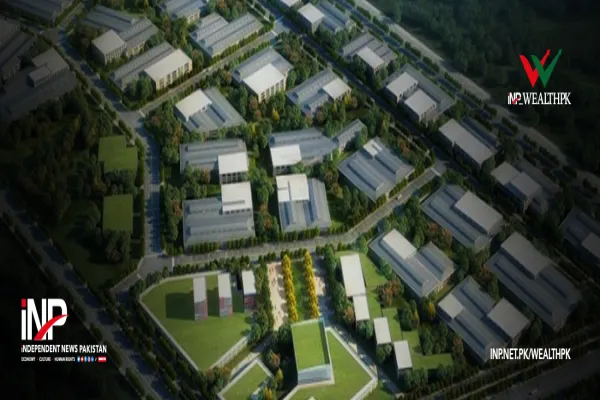i INP-WEALTHPK
Amir Saeed
Strategic collaboration and access to mentorship, resources, and industry networks are essential for sustaining and scaling Pakistan’s rapidly growing startup ecosystem. The startup ecosystem is witnessing remarkable growth, driven by the National Incubation Centres (NICs) under the IGNITE-National Technology Fund (NTF), as highlighted in the Pakistan Economic Survey 2024-25, reports WealthPK.
The NICs have incubated over 1,900 startups, with more than 960 graduating successfully. These ventures have collectively generated over 185,000 jobs, attracted investments totalling Rs30.8 billion, and earned combined revenues exceeding Rs27.3 billion. The NICs play a vital role in accelerating digitization and transforming Pakistan into a knowledge-based economy by promoting innovation and entrepreneurship in Information and Communication Technologies (ICTs).
The program has also empowered over 12,000 women entrepreneurs, reinforcing inclusive growth. Complementing incubation efforts, the DigiSkills.pk 2.0 training program has conducted over 4.55 million training sessions, with 72% male and 28% female participants, including more than 50,000 overseas Pakistanis. This initiative has enabled freelancers to earn an impressive US$1.65 billion by December 2024, showcasing Pakistan’s growing footprint in the global digital economy.
Further fostering technical excellence, IGNITE launched the Digital Pakistan Speed Programming Competition 2025. This nationwide contest challenges students, professionals, and startups in programming languages such as Java, C/C++, .Net, and Python, enhancing analytical thinking, teamwork, and computational creativity.
Together, these IGNITE-NTF initiatives — NICs, DigiSkills.pk, and the programming competition —are propelling Pakistan’s startup ecosystem forward, creating jobs, attracting investments, and nurturing a vibrant culture of innovation that promises sustained economic growth.
Talking to WealthPK, Awais Ahmad, Director at Tech Solutions Pro, emphasized that while the impressive investment figures and job creation by Pakistan’s National Incubation Centres (NICs) are commendable, the long-term success of the startup ecosystem hinges on fostering deeper strategic collaborations. He pointed out that the startups require more than just capital; access to mentorship, industry networks, and affordable technological resources is equally critical.
Ahmad highlighted that in mature ecosystems worldwide, incubation centres and universities benefit immensely from partnerships with established tech companies and financial institutions, which provide not only funding but also expertise, infrastructure, and market access. He stressed that the country’s ecosystem should prioritize building such alliances to bridge gaps in knowledge and operational capacity.
For example, subsidized access to cloud computing, legal advisory, and marketing services can significantly reduce early-stage startup costs, allowing entrepreneurs to focus on innovation and scaling. Ahmad also noted that these partnerships help startups navigate regulatory challenges and enhance their competitiveness in international markets.
Moreover, he believed that creating a culture of collaboration, where corporations, academia, and government agencies actively support startups, will accelerate Pakistan’s transformation into a sustainable knowledge economy. “This holistic approach, combined with existing initiatives like NICs and DigiSkills.pk, is essential for nurturing startups that can compete globally and contribute meaningfully to economic growth.”
Credit: INP-WealthPk








